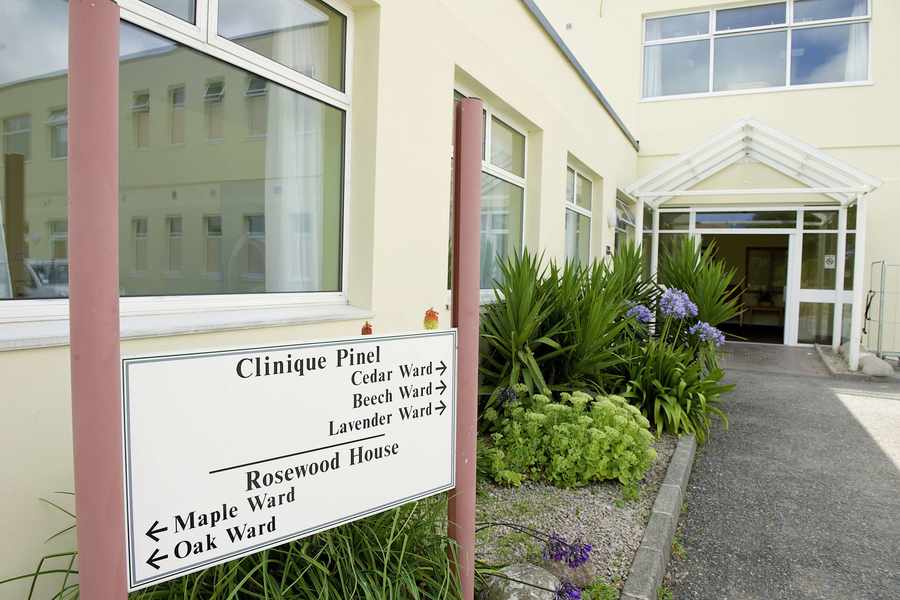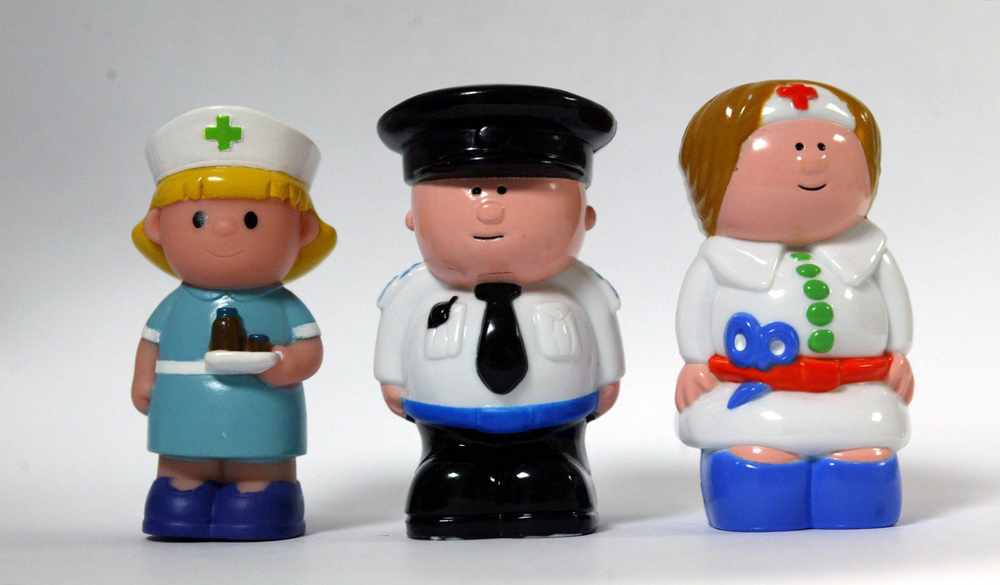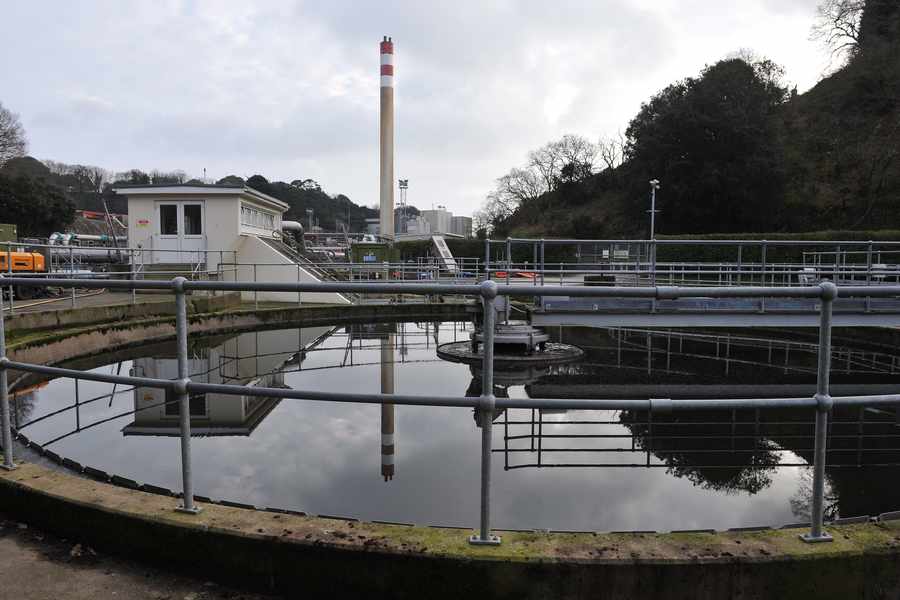- Up to 2,000 public sector employees could march against proposals to cut funding for public service
- Cuts include a pay freeze for all workers with the exception of nurses and midwives
- Protesters will march through town on Saturday 3 October
- Will you be going on the march to protest against the spending cuts? Take part in our poll
AS many as 2,000 public sector employees could march through St Helier next month against proposals to cut funding for public services in what could be the largest demonstration the Island has seen.
Several major unions have expressed their anger at proposals for public sector cuts, which included a pay freeze for all workers with the exception of nurses and midwives and a programme of voluntary and potentially compulsory redundancies.
So far, about 100 people have been offered voluntary redundancy.
The cuts are part of a States plan to plug a predicted £145 million financial shortfall – with more than £70 million being found in staff savings.
However, union representatives oppose the plans and will march through town on Saturday 3 October to protest against the cuts and attempt to persuade the States to rethink and reject the proposals.
Marina Mauger, Jersey secretary of teachers’ union NASUWT, said that she hopes around 2,000 people could take part in the demonstration and invited Islanders ‘concerned about Jersey’s future’ to join the rally.
She said: ‘The MTFP has huge negative implications for all of Jersey.
‘On the one hand, the cuts to services will see many loyal public servants thrown out of work and public services outsourced, privatised or stopped completely, all of which will have a detrimental effect on the whole of Jersey as the unemployment rate rises, service quality declines and off-Island companies take money out of the local economy.
‘On the other hand, increased and new user charges, which are little more than stealth taxes, will further compound the transfer of the burden of taxation on to the individual, with the lowest paid the hardest hit.
‘The taxation policy of the States is proving here and elsewhere to be unsustainable and is in urgent need of a full review.’
The MTFP is due to be debated by the States on Tuesday 6 October.
An amendment has been lodged by St Helier Deputy and Reform Jersey politician Geoff Southern which calls for a tax increase for Jersey’s highest earners to cover proposed Social Security cuts.

IN APRIL this year the States predicted that Jersey would have a £125 million budget shortfall by 2019. Just three months later, the release of the Medium-Term Financial Plan (MTFP) for 2016 to 2019 has seen that figure rise to £145 million.
The additional £20 million shortfall has been caused in part by the expected loss of £13 million in company income tax – with revenue expected to fall by £10 million from one business alone – as well as changes to forecasts for inflation, interest and tax revenues.
Today, within the MTFP, the States have announced a package of measures to make up the expected deficit, with cuts to the public sector being the key target, as well as the imposition of new taxes and levies such as health and sewage charges to bolster the public purse.
How is the shortfall to be made up?
Depreciation
The largest chunk of the deficit is expected to be caused by depreciation – the reduction in value of States’ assets such as buildings and vehicles – which will account for £55 million in 2019.

Additional investment
Much of the deficit will be created by additional investments planned by the States, in particular on health and education, with an additional £40 million and £9 million planned to be allocated respectively.
Of the additional £40 million funding being set aside for the Health Department, £19 million is planned to meet increased demand for services, more than £3 million on early interventions to support vulnerable families and £2 million for mental health services.
An extra £4 million is also planned to be invested each year to maintain Health Department property.
Expenditure on Health and Social Services is expected to continue to rise as Jersey’s population ages. By 2035 the States predict that there will be 70 per cent more over the age of 65 living in the Island than there are today, and twice as many people over 85 as there are today.
Funding will therefore need to be found for new health technology, drugs and treatments if Islanders are to remain healthy throughout their lives.
Of the £9 million funding for the Education Department, the States have indicated that they will allocate an extra £3 million a year for information technology education and students who need extra support.
They also plan to continue investing in developing school infrastructures, including at Les Quennevais, Grainville and St Mary’s Primary School.
The States claim that Jersey’s academic performance has ‘plateaued’ over the last ten years and say that investment is a priority.
As well as spending on health and education, additional funding for other departments is forecast to contribute £13 million towards the shortfall.
Base budget
Aside from the planned additional investments, current spending commitments are expected to see a £28 million shortfall by 2019.
How will the States plug the financial black hole?

Cuts to the public sector
The States plan to save £90 million by 2019 by cutting back spending on Jersey’s public sector, with several measures already underway such as voluntary redundancies and renegotiation of existing contracts.
After announcing £60 million of cuts in April, the States has already increased its target by £30 million.
Public sector employees will bear the brunt of the proposed cuts, with staff costs now targeted to be reduced by £70 million by 2019. Proposed measures include redundancies, cutting back services, outsourcing work, pay freezes, reducing recruitment levels, performance management initiatives, departmental mergers, restructuring and the introduction of technology such as e-gov to reduce reliance on staff.
So far 7,000 States employees have been offered voluntary redundancy packages and all public sector employees have been forced to take a pay freeze this year with the exception of nurses and midwives who will receive a 0.4 per cent increase.
Compulsory redundancies are expected to follow once the voluntary programme has finished.
Health charge
The States aim to raise £35 million to offset against the expected deficit through the introduction of a health charge by 2019, but details of the exact nature of the charge are not yet known.
The health charge could be levied in the form of a flat user-pays charge, which would hit middle and low-income earners in particular – Health Minister Andrew Green was unable to confirm last month what form it will actually take.
If Jersey’s population remains at around 100,000, the proposed health charge will cost Islanders about £350 each per year on average.

Sewage charge
A further £10 million is planned to be raised through the introduction of user-pays charges for the disposal of liquid and solid waste – again the exact nature of this charge has not yet been confirmed.
Cuts to benefits
The States intend to freeze benefits spending until 2019 to save £10 million – they have said that they intend to minimise the impact by spreading cuts across a large groups of claimants.
Measures will include most elements of income support being frozen next year, one-off income support payments being replaced with loans, lone parents being treated the same as other adults for income support, pension and maintenance income being taken fully into account for income support calculations and under-25 jobseekers being treated in the same way as students of the same age for welfare purposes.






